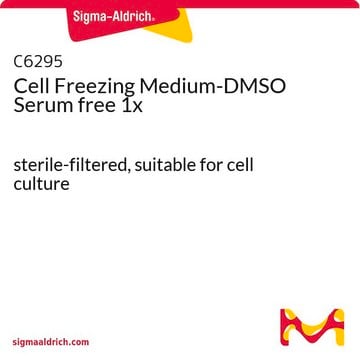W387520
Methyl sulfoxide
≥99%, FG
Synonym(s):
Dimethyl sulfoxide, DMSO
About This Item
Halal
Recommended Products
biological source
synthetic
Quality Level
grade
FG
Halal
Agency
meets purity specifications of JECFA
reg. compliance
EU Regulation 1334/2008 & 178/2002
FDA 21 CFR 172.859
vapor density
2.7 (vs air)
vapor pressure
0.42 mmHg ( 20 °C)
Assay
≥99%
autoignition temp.
573 °F
expl. lim.
42 %, 63 °F
refractive index
n20/D 1.479 (lit.)
bp
189 °C (lit.)
mp
16-19 °C (lit.)
density
1.10 g/mL (lit.)
application(s)
flavors and fragrances
Documentation
see Safety & Documentation for available documents
food allergen
no known allergens
Organoleptic
fatty; garlic; mushroom; oily; cheesy
SMILES string
CS(C)=O
InChI
1S/C2H6OS/c1-4(2)3/h1-2H3
InChI key
IAZDPXIOMUYVGZ-UHFFFAOYSA-N
Looking for similar products? Visit Product Comparison Guide
Application
- Dimethyl Sulfoxide (DMSO) as a Potential Source of Interference in Research Related to Sulfur Metabolism-A Preliminary Study.: This study investigates the potential interference of DMSO in sulfur metabolism research, highlighting its impact on experimental outcomes. (Kaczor-Kamińska et al., 2024).
Caution
Storage Class Code
10 - Combustible liquids
WGK
WGK 1
Flash Point(F)
188.6 °F - closed cup
Flash Point(C)
87 °C - closed cup
Choose from one of the most recent versions:
Already Own This Product?
Find documentation for the products that you have recently purchased in the Document Library.
Customers Also Viewed
Our team of scientists has experience in all areas of research including Life Science, Material Science, Chemical Synthesis, Chromatography, Analytical and many others.
Contact Technical Service

